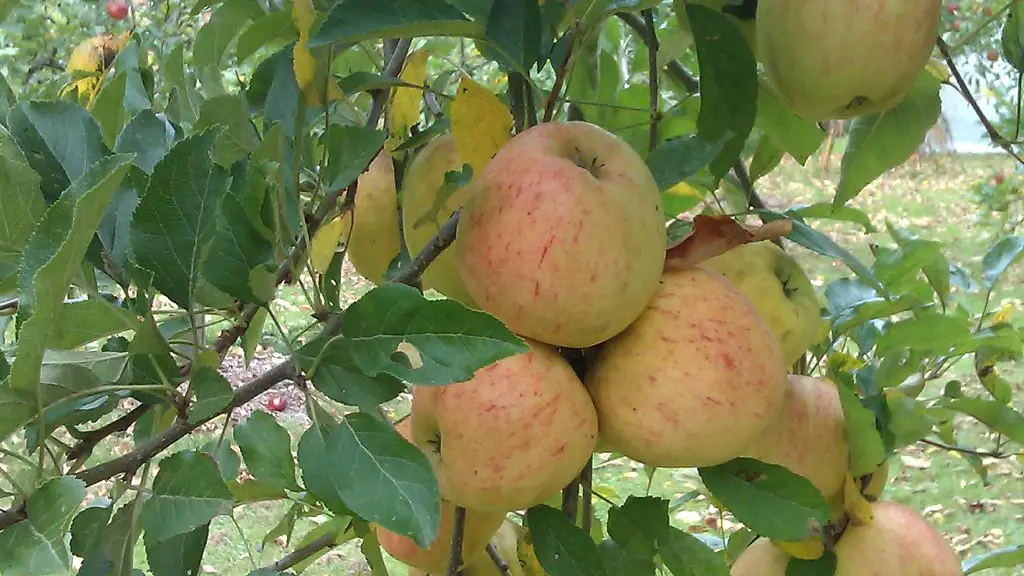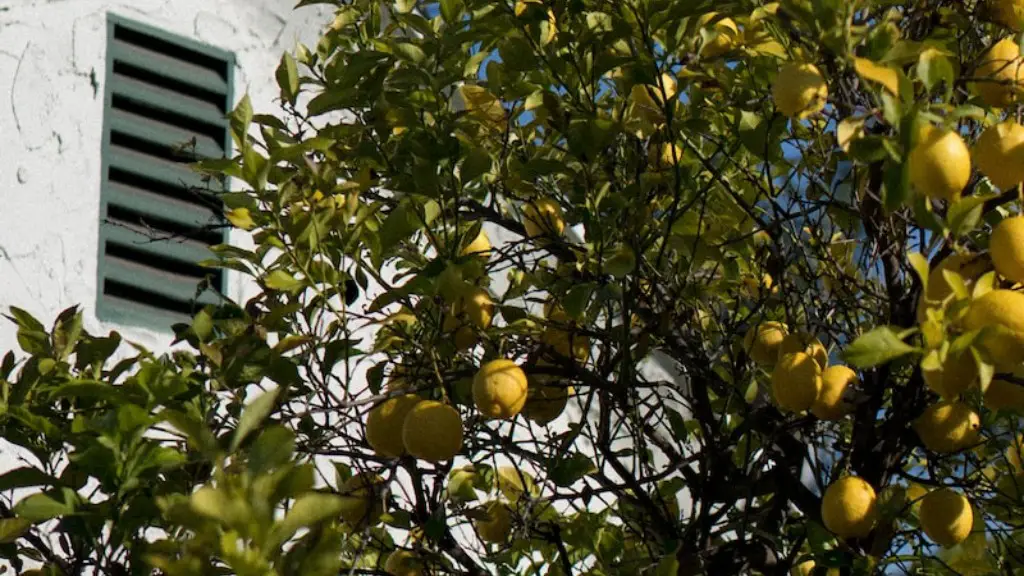Do Avocados Ripen Off the Tree?
When it comes to avocados, the question of whether or not they can ripen off the tree does not have a simple answer. Depending on the variety of avocado, the time of year, and the condition in which the avocados are being stored, the ripening process can be hastened, delayed, or even prevented.
According to experts, there are three main types of avocados available on the market: Mexican, Guatemalan, and West Indian (Hass). Each one will ripen in its own unique way due to its natural defenses that protect it from the elements. Mexican avocados are generally favored in the United States while the West Indian avocado is more commonly found in the Caribbean.
Avocados hold a special place in the hearts of many. It’s one of the few ingredients capable of adding richness and flavor to nearly every dish from salads to sandwiches, on toast, and in guacamole. It can be used as a condiment or even in place of butter.
In terms of ripening, the most important factor is temperature. A ripe avocado will give slightly to the touch when ripe, unlike an over-ripe one that can be soft or mushy. Heat makes the healthy fruit ripen faster, which is why many people use the “fruit bowl” method at home. Place the avocados in a bowl with other fruit that is ripening, such as bananas, apples, or pears. The ethylene gas released by the other fruit will speed up the ripening process of the avocados.
However, if you are too impatient and put the avocado in the fridge, the cool temperatures will slow down the ripening process. Avocados stored in the refrigerator may require more days in order to become ripe. A quick tip to expedite the process is to place the avocado in a small brown paper bag that’s been folded to keep it closed.
Lastly, but certainly not least, it’s important to understand the process of ripening avocados off the tree needs to be done with caution. Leaving the fruit out for too long can cause it to spoil, which means it won’t be edible.
The Power of Avocados
Avocados have been around since much before the spice-laden foods of today. They’ve been used for centuries for their nutritional benefits, high levels of healthy fats, and vitamins. According to a 2009 study conducted at UCLA, avocados possess unique and strong healthful qualities that are beneficial to our physical health. These include antioxidant, anti-inflammatory, and anti-cancer benefits.
Avocados also contribute numerous vitamins, such as vitamins A, C, and E as well as selenium – all of which are powerful antioxidants. The fruit is an excellent source of potassium, lutein and beta-carotene – ingredients which promote better heart health and can help keep arteries functioning optimally. Additionally, research indicates that avocados can help with weight management as they are high in fiber and contain healthy monounsaturated fats.
Avocados can also help increase a person’s overall intake of healthy fats. Since our brains are mainly composed of fat, eating avocados can help better manage our moods and provide energy for proper brain function. The produce also packs numerous additional vitamins and minerals, such as Vitamin B6, Vitamin K and folate – nutrients essential for a healthy body.
It’s important to note that avocados are one of the few fruits that contain healthy monounsaturated fats, which makes them a must-have in most diets. These fats can help lower levels of ‘bad’ cholesterol, while also increasing ‘good’ cholesterol levels.
Additionally, the fruit is incredibly easy to add to any meal – be it breakfast, lunch, or dinner. A simple slice of avocado on toast can turn a mundane sandwich into a savory dish. Avocado toast is a favorite for many, as it’s quick, easy, and delicious.
The Surprising Benefits of Avocado Seed
Avocado seeds – which are usually discarded – have incredible potential and can actually be used to enhance a person’s overall health. The brown and leathery seed is an excellent source of fiber, vitamins, and minerals such as iron and phosphorus.
Studies have also linked avocado seeds to antiviral and antimicrobial properties, which means they can help fight off viruses and bacteria. Additionally, research suggests that avocado seeds are packed with powerful antioxidants such as anthocyanins and flavonoids, which can help protect against certain chronic diseases.
In terms of dietary benefits, the seed is able to regulate the body’s blood sugar levels. This is important for individuals with diabetes, as it can help control glucose levels and prevent spikes. The seed also plays a role in weight loss. This is because it contains dietary fiber – a nutrient that helps you feel satiated for a longer period of time, thus reducing the urge to eat more.
Avocado seeds can be used to make a powder, often referred to as ‘avocado seed flour’. This powder is usually added to smoothies, baked goods, and sauces for a hint of nutty, earthy flavor. When used in cooking and baking, this flour can reduce the amount of saturated fat and provide a healthy dose of heart-friendly omega-3 fatty acids, protein, and dietary fiber. Furthermore, it can even serve as a substitute for processed, unhealthy flour that can cause inflammation.
The Downside to Avocados
Avocados can be loaded with health benefits and are regarded as a ‘superfood’ in many parts of the world. Despite this, the fruit has recently come under fire due to its high levels of fat. Research suggests that some individuals may be sensitive to these fats and can experience digestive issues.
Experts also warn against eating large amounts of avocados, as it can be damaging to the environment. This is because the production of avocados uses a lot of energy, water, and land. As such, consuming the fruit in excess can negatively impact the environment.
The other downside to avocados is their cost. Since it takes seven to 18 months for an avocado tree to produce, this can make the cost of avocados quite expensive. For example, one single avocado can easily cost over three or four dollars – which is significantly higher than many other fruits.
Conclusion
In conclusion, avocados can be an incredibly healthy addition to one’s diet, but they can also be harmful if consumed in excessive amounts. Understanding the ripening process – both on and off the tree – as well as the added benefits of the avocado seed can help ensure we are gaining all the health benefits associated with this unique fruit.




